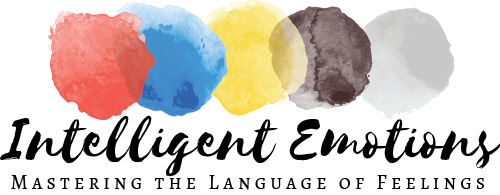Blogs by Categories
The 3 Emotional Habits that Trip Up Highly Sensitive Persons (HSPs)
The Highly Sensitive Person is someone who resonates with the four traits of D.O.E.S.: Depth of Processing, Overstimulation, Emotional Reactivity + Empathy, and Sensitivity to Subtle Stimuli. Read about how this affects our emotions!
One Quick Self-Control Test to Know if Your Feelings Are Running (& Ruining!) Your Life
Negative feeling aren’t BAD, and positive feelings aren’t GOOD. When negative feelings show up, are you in or out of SELF-CONTROL? Control isn’t bad, but we might be exerting control on the wrong party that makes hard things worse.
What are Your 3 Rs to Keep You Emotionally Anchored?
Feeling overwhelmed, lost, or overwhelmed? The 3 Rs of Routines, Rhythms, & Rituals can soothe your frazzled nervous system and help your body settle into a smoother rest state.
The Five S's of Self-Care for HSPs
When you have a lot going on your nervous system can get overloaded. Learn about the five S’s of less to make it easier on yourself.
What is Alexithymia?
Alexithymia is the difficulty or inability to talk about, navigate through, or deal with emotions; Learn about two books that can help you know how to become emotionally healthy - the first one explores what sometimes causes alexithymia, and the second one will help you understand alexithymia in relationships.
3 Powerful Affirmations for Emotional Balance
Learn 3 quick affirmations that help you live life to the fullest while keeping emotional balance.
Resentment in Relationships is Your FRIEND
Resentment is not a BAD emotion, and it’s not an emotion that makes YOU bad. This emotion gives us a chance to shift our relationships so that there’s enough room for the BOTH of us.
Feeling Emotionally NUMB: The Emotion of Recentering
Are you feeling nothing? Or are you feeling emotionally NUMB? Emotional numbness says, “There is TOO MUCH.” Learn 4 ways to care for yourself by making things LESS.
Feeling SCARED: Fear as the Emotion of Sizing Up
Do your FEARS paralyze you or make you believe you’re less than capable of what lies ahead? Learn how to engage your MIND, HANDS, and HEART, and let the fourth emotion, FEAR, help you rise to challenge.
Feeling GLAD: The Emotion of Validation
Unlike the other BIG FIVE EMOTIONS, GLAD does not indicate a need we have. Instead, feeling GLAD tells us when a need is met, and the best way to respond is by CELEBRATING that and paying it forward.
Feeling SAD: Sadness as the Emotion of Mattering
Emotions indicate our needs, and SADNESS is no different. Though we feel sad about different things, the emotion tells us that something MATTERS to us. Something or someone we love is no longer present. Learn more about feeling SAD and what it means to experience this emotion.
Anger and Guilt: The Emotions of RESPONSIBILITY and REPAIR
Usually, ANGER and GUILT are thought of as bad emotions. But in reality (and when practiced healthily), these emotions can strengthen relationships and bring people closer through RESPONSIBILITY and REPAIR.
The BIG 5 Emotions: MAD, SAD, GLAD, SCARED, NUMB
Emotions can tell us a lot about our NEEDS and how we can go about meeting them - either ourselves, through others, for others. Learn more about the meaning of the BIG FIVE emotions of MAD, SAD, GLAD, SCARED, and NUMB.
Pride and Shame: Flipsides of the Same Coin
Contrary to popular opinion, pride and shame are not opposites but rather one and the same. Read more about how pride and shame operate and find the antidote to both.















